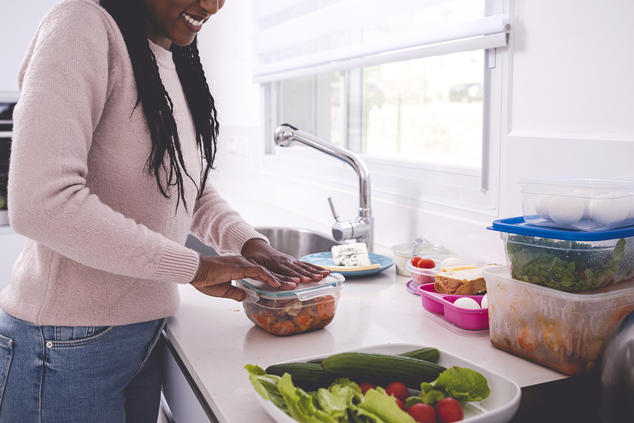This post will explain ways to reduce food waste. While the typical customer is not a big ecological polluter compared to large corporations, finding ways to reduce food waste throughout the day can assist an individual avoid adding to the issue.
10 Easy Ways To Reduce Food Waste
In this post, find out about ways to reduce food waste in the home, at school, and on the go.
1. Prevent buying excessive
A body can cut back on food waste by not getting excessive when grocery shopping.
Among the most basic methods to avoid food waste as a consumer is to purchase less.
A jam-packed fridge may look appealing, but it may result in food waste if the home can not eat all of the food.
Taking a number of shorter trips to the supermarket every week rather than one longer trip might avoid people from buying excessive food and aid cut back on waste.
2. Think twice prior to tossing food away
While mold is a definite indication that something belongs in the trash, it is not necessary to throw away foods that are somewhat past their prime.
For example, many greens and vegetables may a little soften or weaken when they are just beyond ripe. They still may make wonderful additions to soups, shakes, or baked meals.
People can utilize remaining vegetable scraps to make a soup stock. Even stale bread makes toast or breadcrumbs. ” Best prior to” dates can be misleading– if fruit and vegetables still appears fresh and functional, it is typically great to consume it.
3. Constantly make a shopping list
Buying foods that are currently in the home can eventually become another source of waste.
Taking a stock of the food in your home and making a grocery list prior to going to the store may assist individuals prevent acquiring unneeded foods and cut back on possible waste.
4. Organizing the kitchen area with FIFO
Organizing the refrigerator and kitchen can help people track what they have at home and help them to recognize foods that are ready to consume.
” FIFO” means “first in, initially out” and is an useful way to organize food at home. Numerous restaurants and grocery stores utilize this system to decrease waste, too.
Putting newly bought foods at the back of the cupboard or refrigerator will motivate people to use the food in the front row initially, which will guarantee freshness and lower waste.
For instance, if an individual keeps lots of tins in your home, guarantee that the ones closest to their expiration date are at the front of the cabinet and use those first.
5. Store food correctly
Disposable products, such as vegetables and fruits, each have their best way to save to prevent putridity.
Some pointers consist of:
– keeping the refrigerator below 5 ° C (41 ° F).
– keeping cooked foods on racks above raw foods.
– storing food in sealed containers.
Constantly move leftovers from open cans into an appropriate container. Do not store it in the can.
The United States Environmental Protection Agency likewise note that some fruits emit natural gases that make nearby foods spoil quicker. Saving apples, bananas, and tomatoes apart from other perishables may assist keep them all fresh.
Making a meal menu for the week might assist some people arrange their food usage and cut back on waste. Using online tools or cookbooks to help plan meals for the week can a person to compile an accurate shopping list.
It force take a few of weeks for each household to get the menu right, however having actually a set weekly menu might assist some people minimize the uncertainty around meals and prevent squandering food.
7. Keep a log of spoiled foods.
Making a note of the kinds of foods that go bad can help an individual recognize the foods that they can cut back on.
For instance, if somebody finds themselves tossing out numerous oranges as they go bad, the service might be to buy less oranges to avoid this spoilage.
Although purchasing larger bags of fruit and vegetables instead of a couple of pieces might appear cheaper, a person will not save cash if they routinely discard part of the contents.
8. Freeze additionals.
Freezing foods can help maintain them for later on use and prevent them from spoiling. Lots of fresh fruits and vegetables keep well when frozen, extending their life span and lowering waste. Other foods may protect well in the freezer also, such as bread, meats, and even some ready dishes.
Freezing foods that individuals use less frequently, such as herbs, is specifically valuable. For those seeking to eat more sustainably, freezing additional fresh vegetables and fruits when they are in season in your area can decrease the requirement for buying them when they run out season and originate from far away.
9. Eat leftovers.
As part of a meal strategy to lower waste, many individuals select 1 or 2 days each week to consume any leftovers they may have stored in the fridge or freezer.
This helps in reducing waste from private meals and keeps the fridge tidy.
10. Try out food preservation techniques.
Appropriately canning or pickling foods can help to extend their service life and prevent putridity. If a person inadvertently buys excessive of a specific food, maintaining the food in this way can prevent it from ruining and being gotten rid of.

